Lessons from the Press Gazette Future of Media Conference 2025
A guest editor for this What I've Been Reading digest as Jacqui covers the fight with AI, Google battles and an Irish subscriptions powerhouse + an award win for The Lead North
Good afternoon,
There’s a guest editor for this edition, which means it is a massive upgrade compared to my usual ramblings. Before we get into that, and some insights from the Press Gazette’s Future of Media conference, one of the projects I’ve been working on has won a national journalism award.
Well done and thank you to everyone who has been involved in The Lead North - Luke successfully smashed and grabbed in a visit to London last week for the awards to bring home the trophy. See more about The Lead North.
And now over to today’s guest editor, my fellow JLeaders alumni from the University of Lancashire’s Journo leadership and innovation course (recruitment for the 2026 cohort is now open if you’re interested) and a former Reach colleague Jacqui Merrington.
She is now setting a path for the future of mass market journalism with Mail Metro Media Group where she has recently become director of AI. Over to you Jacqui!
Welcome to this week’s What I’ve Been Reading newsletter. I’m Jacqui Merrington, Director of AI at Mail Metro Media, and this week Ed’s asked me to step in and share some of what I learned at Press Gazette’s Future of Media Tech conference last week.
Here’s my take on the discussions, framed through three standout quotes….
“You can turn steak into hamburgers but you can’t turn hamburgers back into steak.” Lucky Gunasekara, founder, Miso Technologies
Hat tip to Lucky for my quote of the day. It may have been second hand, but it was spot on. The LLMs are scraping your steak-quality content and generally making mincemeat of it. So how should we respond?
According to Lucky, who took to the stage with Julie Baron, chief product officer from O’Reilly Media, we need to take control, block the bots and then build a solution to help you extract the value from your own content and archive - without turning it into processed muck.
Too many sites are open to LLM scrapers and bots. Around 47% of publisher sites don’t have robots.txt in place. Put blockers in place, monitor for violations, and keep evidence. If you see scraping, screenshot, log user agents/IPs, and send a lawyered cease‑and‑desist. They’re monitoring you - so monitor them back, says Lucky. Start with your defence; then go on the offence with AI products that give users a more meaningful experience than a zero‑click answer can.
O’Reilly’s deployment with Miso has done just that - created a smart ring-fenced archive retrieval engine and reaped the rewards: higher engagement, retention and pages per user. The key is answering the long tail - the unexpected, unique and personalised questions people actually ask. They’re also translating on the fly, and - crucially - outperforming ChatGPT on publisher-specific tasks. High-quality, structured, first‑party content yields far better answers than generic systems can reverse‑engineer.
“Google was once seen as the best of frenemies. That’s clearly changed.” Martin Ashplant, product development and operations director, PA Media
The disappearance of Google search traffic - and fears we're heading for Google Zero - was a running theme throughout the day. Meanwhile, ChatGPT is starting to make an appearance as a referrer. So how are publishers adapting…
Anna Sbuttoni, deputy head of digital for The Times, reported that June was their highest traffic month ever, with ChatGPT now among their top five referrers and conversion sources. While live news and blogs continue to perform well, lifestyle content has dipped. The Times is now focused on driving users into its app for a better experience and plans to put its people and personalities front and centre to deepen engagement.
Carly Steven, director of SEO and editorial e-commerce for the Daily Mail, emphasized the importance of strong direct traffic, which accounts for 50% of their views, and branded search, which makes up 60% of DM search traffic, making them comparatively resilient to Google changes. She called for better attribution and transparency from Google, alongside clearer signposting of links to rebuild trust and balance the value exchange.
Martin Ashplant reflected on the changing relationship with Google. He warned that without incentives for original content, AI will only produce summaries of summaries—“which become summaries of nothing.”
Caroline Fenner, chief revenue officer at Pink News said her business was focused on reducing their reliance on Google and building safe spaces for their communities. She highlighted the benefits of real life events and the success of Time Out as a way to diversify revenue.
Stuart Forrest, Bauer’s global SEO director, noted that zero-click search has been around for a while. Their strategy has long focused on building communities and content that adds value to search. He also flagged that bot traffic now represents 1 in 50 visits to sites.
“The days of tacking people round the internet and shooting ads at them are gone. We need to figure out how to take that one anonymous visitor to maximum value.” Dan Rua, CEO, Admiral
Dan’s point was that the deprecation of third party cookies forced a change in approach from publishers before ChatGPT or Google’s AI Overviews took hold. Extracting maximum value necessitates building audience relationships and from there driving subscriptions or high value advertising revenue.
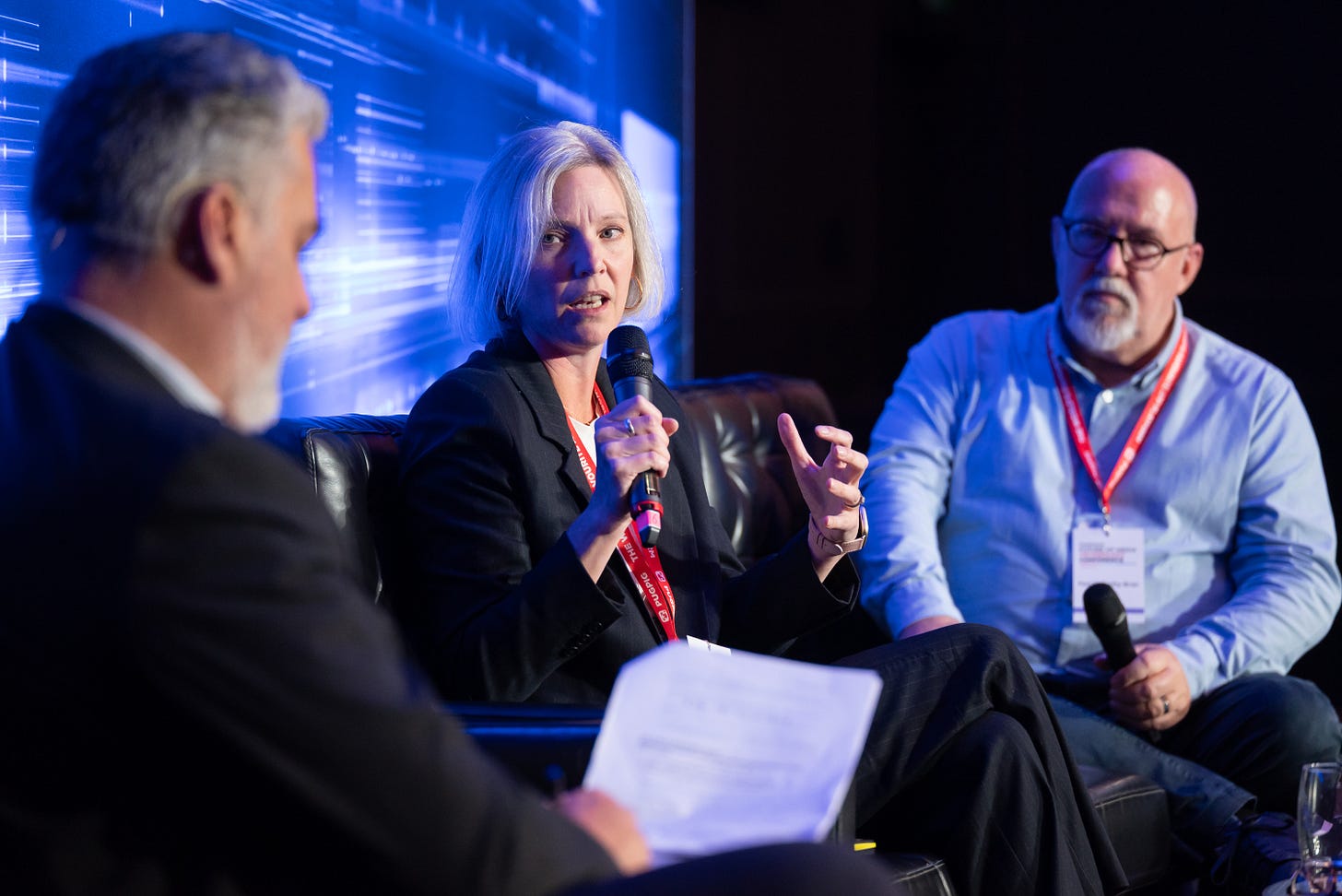
Sheena Peirse, chief customer officer at Mediahuis Ireland, talked about what happens when brand strength meets data‑informed experimentation. They started their subscriptions play in 2020, aiming for 7,500 subs in year one - they hit that target in six weeks and hit 100,000 subscribers earlier this year. Key levers: model customer lifetime value over three years, test intro offers (one month isn’t the answer—try 3/6/12/24 months), and use paid social for performance. Capture the context of signup (what they read, what they paid) to power re‑engagement and churn reduction later.
And that’s all for this edition of What I’ve Been Reading, thank you very much to Jacqui for stepping in with her insights from the Press Gazette conference. I hope you’ve enjoyed them.
Hope you’re all having a good week and the What I’ve Been Reading digest will be back to its usual format next week and who knows we might have Jacqui back again in the future too (once she’s finished cracking the future of AI for journalism that is!).
Keep going.
Ed (& Jacqui!)



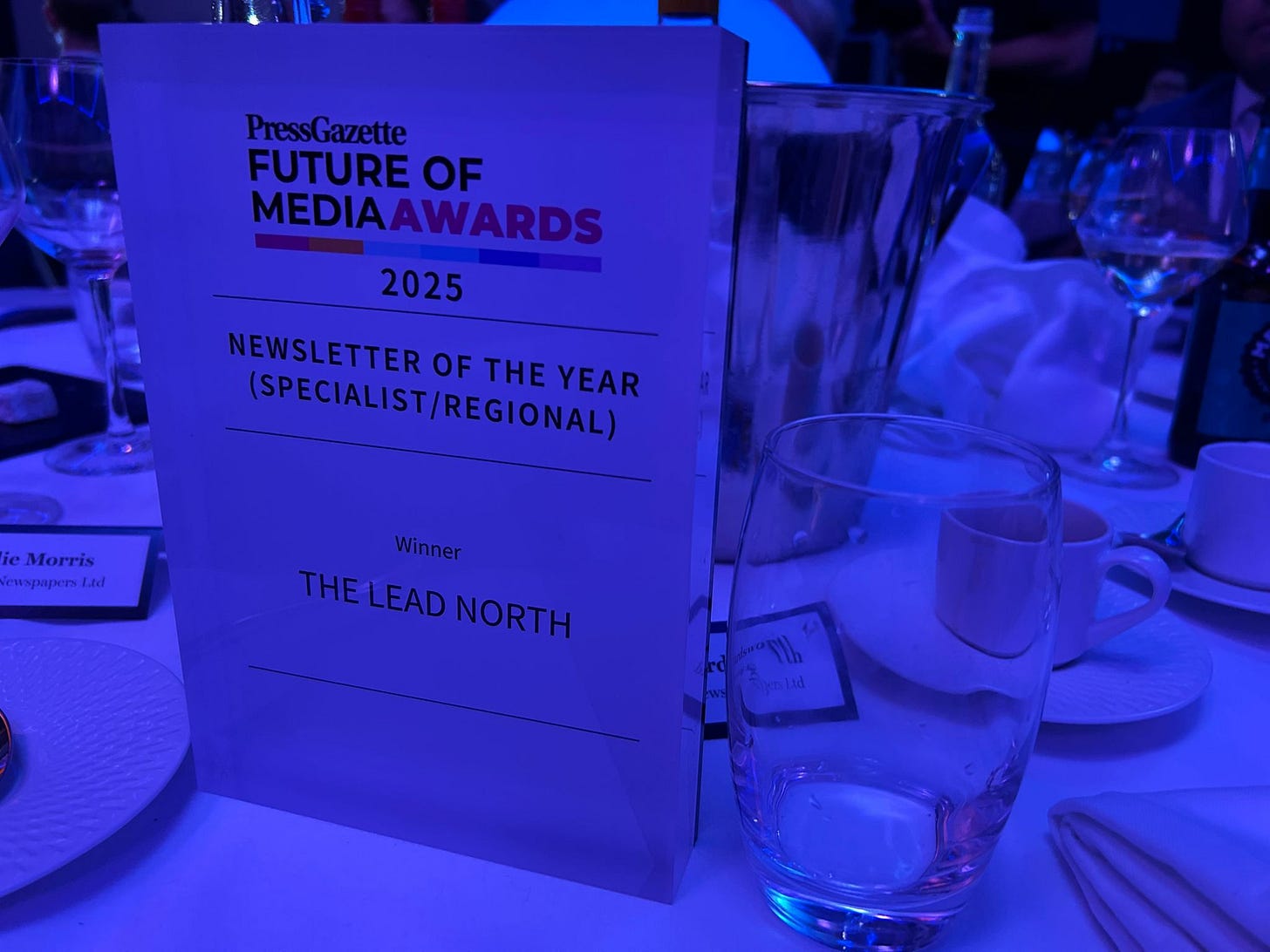
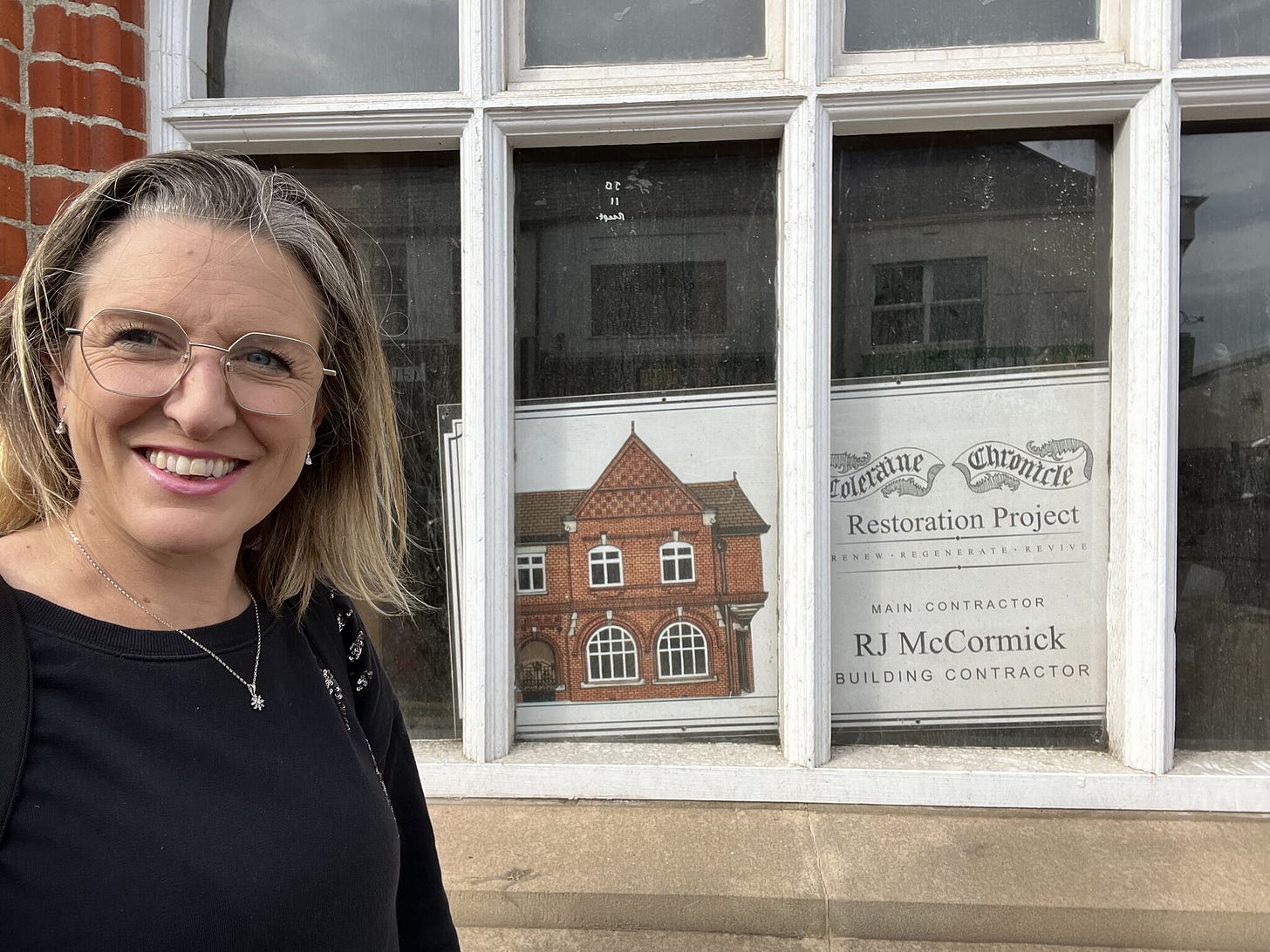
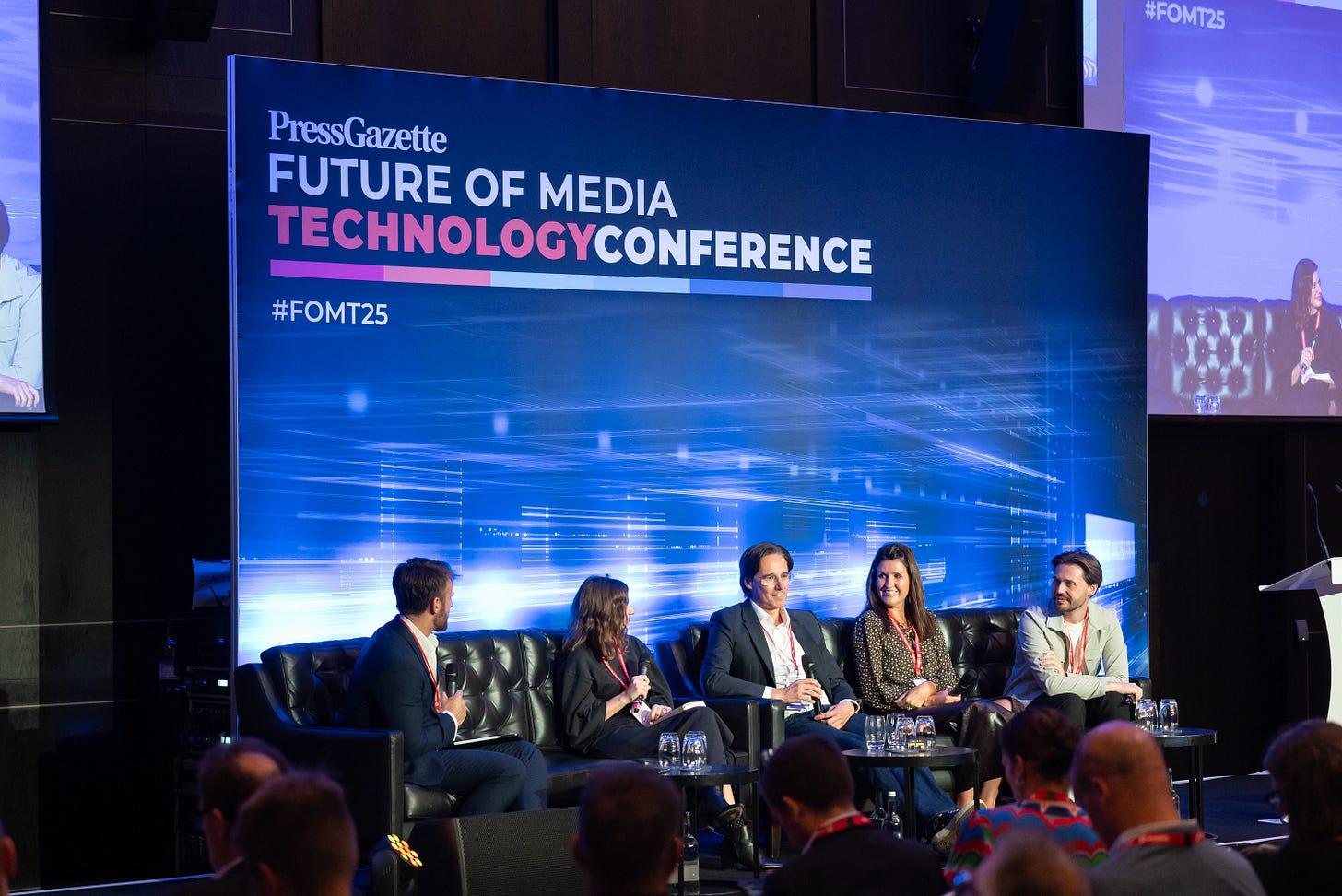
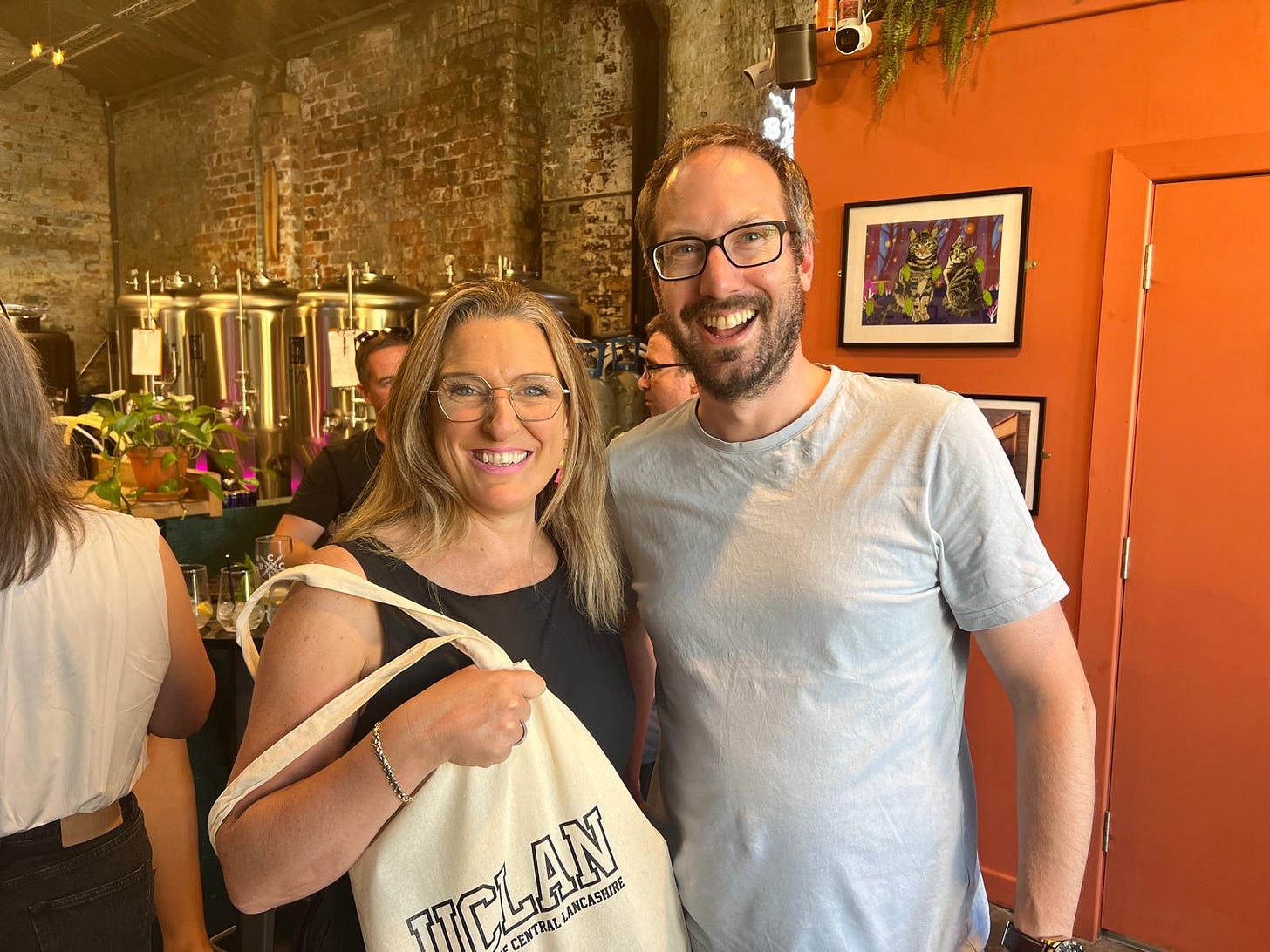

Big congrats to The Lead team!
Really interesting. Thanks, Jacqui